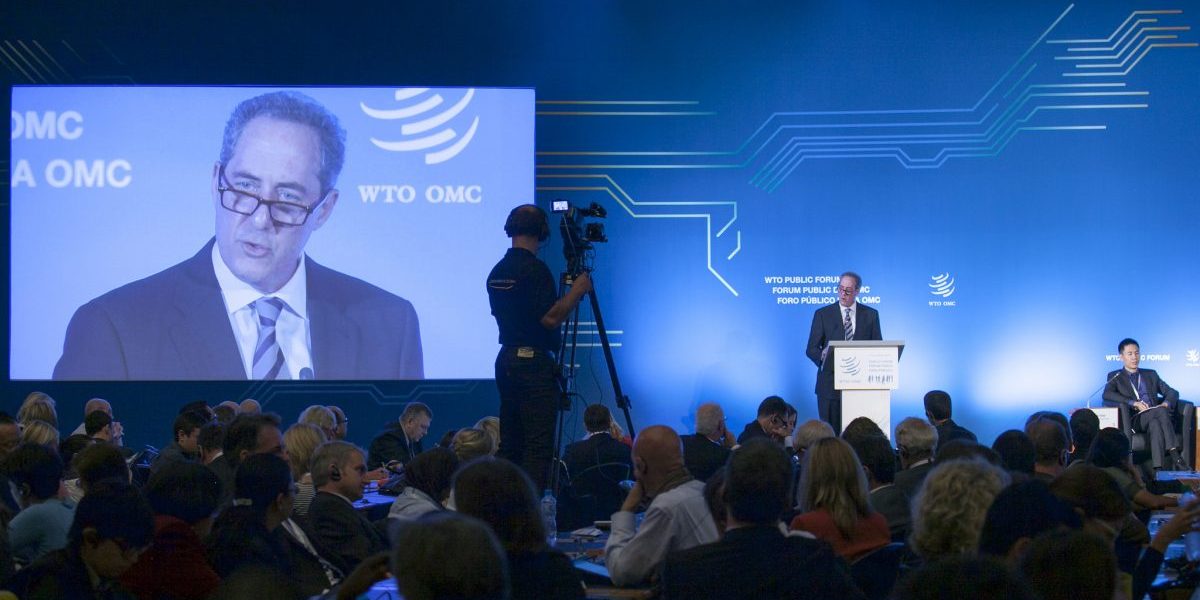A brief scuffle ensued as the protesters were escorted out to join a larger group outside.
Inside, Moeletsi Mbeki, deputy national chairman of the South African Institute of International Affairs, reminded the audience that Lamy was the guest of a democratically elected government, not a criminal.
During the Hong Kong ministerial meeting in December last year I watched as South Korean farmers, in a sophisticated military-style operation, engaged the police in a fierce, if uniquely Asian-scripted, melee outside the convention centre.
Their struggle, as Peter Mandelson later reminded us, is to maintain their privileges in the face of potential liberalisation through the Doha Round.
If some groups had their way the multilateral trading system would be disbanded. Others purportedly represent poor countries: in their view the developed world must open its markets and leave developing countries alone. And some just want to protect the privileges they have.
If these groups had their way would developing countries be better off?
Anyone with the vaguest sense of history knows why the WTO, but especially its predecessor, the General Agreement on Tariffs and Trade (GATT) was set up. Its primary purpose was to prevent a repeat of the 1930s Great Depression scenario of tariff and trade wars between the major Western powers.
The Great Depression led directly to the rise of Adolf Hitler and the onset of the Second World War. Hence, the post-war architects of the multilateral economic system – White (representing the US) and Keynes (representing Britain) – put in place a system of mutual reciprocal bargaining designed to prevent such trade wars from occurring again.
Underpinning this was a dominant superpower, the US, prepared to underwrite the system by opening its markets to its allies in the Cold War.
For more than three decades developed countries exchanged concessions among themselves, while developing countries, under the spell of import-substitution industrialisation and/or the Soviet orbit, excluded themselves.
This began to change in the Tokyo Round of the 1970s, and gathered pace in the Uruguay Round of the 1980s, when developing countries began to participate on a substantial scale.
Even then it was primarily the most successful developing countries in East Asia and Latin America that did so.
Agriculture and clothing and textiles, the two principal concerns for developing countries, were only incorporated in multilateral disciplines (and on very unequal terms) at the end of the Uruguay Round. Arrangement governing the latter expired at the end of 2004.
Hence the Doha Round is firmly focused on addressing structural imbalances in agriculture, the last unaddressed bastion of Western, especially but not exclusively European, protectionism.
To argue that developed countries are systematically marginalising developing countries is historically inaccurate. Worse, this argument shifts attention away from the often disastrous policies that developing countries follow at home and that are of far more significant to them than what happens in the WTO.
Development does not begin in the WTO, and the WTO is not a development agency. It is a club whose primary purpose is to negotiate international trade rules and to settle disputes arising from interpretation of those rules impartially. If this club was to disappear the weak would be at the mercy of the powerful.
To adapt Thomas Hobbes’s famous description: “Life would be (even) nast(ier), brutish, and short” for those in the developing world and the world as a whole.
Clearly the system is not perfect.
The Doha Round’s historic mission is to achieve more balance in the club’s rules. However, in seeking that balance it is naive to pretend that the developed world does not have interests of its own.
So, denying developed countries the possibility of securing extension of multilateral rules in new areas will only push them to seek like-minded partners outside the WTO, ie through free-trade agreements.
Furthermore, liberalisation in the developed world will cause pain there and further entrench the antiglobalisation backlash gathering force in countries such as France. And one-sided liberalisation in the developed world will not unlock the potential for south-south trade, but will inhibit developing countries’ growth prospects.
That is why developing countries, with the exception of the poorest, have to do their bit in this round. The real issue is the extent, timing, and sequencing of their commitments, and domestic capacities to implement them. And as for the “guardians” of development – who is guarding them?








